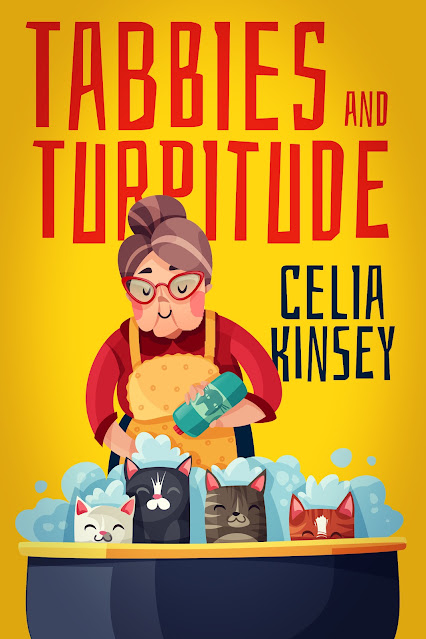Jane Cater Investigates Episode One-Hundred and Nineteen
I read the message three times.
Obviously, it had been placed on my desk during the few minutes I had been
absent. Yet I reasoned that it would be useless to search for the cowardly
person who undoubtedly had already slipped from the building.
“So, I am warned to close shop!” I
muttered to the empty room. “Carter’s
All-Story Weekly offends public taste! What a load of piffling banana oil.”
I crumpled the paper into a ball and
hurled it into the wastepaper basket. I immediately reconsidered, recovered the
note and, carefully smoothing the wrinkles, placed it in my handbag.
When my anger had cooled, I was a bit frightened.
I told myself that it was not unusual for editors to receive threatening notes.
Often my father had shown me such communications sent to the Examiner by
cranks.
It didn’t mean a thing. I’d keep on
publishing Carter’s All-Story Weekly
for as long as I pleased. But I couldn’t shake my uneasiness. Often I worked
late in the building, and a single light burning from an upper story window
proclaimed to anyone watching from the street that I was alone. In the future,
I must use far more caution.
Try as I might, I could not forget the
warning. After Mrs. Applebee had gone home for dinner, I caught myself starting
at every sound. I finally gave up. I was accomplishing very little good by
staying. I couldn’t concentrate. I might as well go home and get a decent
night’s sleep, for once.
I took care to lock all doors and
windows and left the building. Street lights were blinking on as I climbed into
Bouncing Betsy.
Driving mechanically, I weaved through
downtown traffic, now and then halting for a red light. As I was accelerating
from an intersection, a man suddenly stepped from the curb. He was staring down
at the pavement and did not see Bouncing Betsy approaching.
I swerved and slammed on the foot
brake. The edge of Betsy’s fender brushed the man’s overcoat. He gasped in
astonishment and staggered backward.
I brought the car to a standstill at
the curb.
“I hope you’re not hurt,” I said to the
man, who had managed to keep his footing.
“No—no,” the man murmured in a
bewildered manner.
As he turned his face toward me, I
recognized Marcus Roberts, the former publisher of the Morning Press.
“Let me take you home, or wherever you
are going,” I urged. “You don’t look well, Mr. Roberts. I’m afraid I gave you a
ghastly fright. I am very sorry.”
“It was my fault,” admitted the old
gentleman. “I was preoccupied with a distressing matter when I stepped from the
curb.”
“This is a dangerous intersection.
Please, Mr. Roberts, can’t I take you home?”
“If you insist,” he murmured, climbing
aboard Bouncing Betsy. “You seem to know my name, but I haven’t the pleasure of
your acquaintance.”
“I’m Jane Carter. My father publishes
the Examiner.”
“Oh, yes.” Mr. Roberts replied
mechanically.
“Your home is on Drexel Boulevard, I
believe?”
Marcus Roberts nodded and in the same
dull, lifeless voice supplied the address. He made no attempt at conversation.
Mr. Roberts’s face bore lines of mental fatigue and discouragement. He stared
straight ahead with glazed, unseeing eyes.
Hoping to start a conversation, I
remarked that I was the managing editor of Carter’s
All-Story Weekly. For the first time, Marcus Roberts displayed interest.
“Oh, are you the young lady who has
taken over my building?” he asked.
“Yes, Mr. Vaughn allows me the use of
it rent-free. I hope you don’t mind?”
“Mind?” repeated Mr. Roberts, laughing
mirthlessly. “Why should I mind?”
“Well, I thought—that is—”
“You thought that because I gave up my
own paper I might not wish to see the building used by another?”
“Something like that,” I admitted.
“I try not to think about the past,”
said Mr. Roberts quietly. “Long ago, I made my decision, and now I must abide
by it. I realize that I never can publish the Morning Press again. I’m broken, beaten!”
“Surely one can’t be defeated so long
as one is willing to keep up the fight,” I said. “If you chose to make a
comeback, I’m certain you would succeed.”
Mr. Roberts shook his head impatiently.
“You don’t understand. I am through—finished. All I can hope to do is to hold
fast to what little I have and try to protect Henrietta.”
“Henrietta is your wife?”
“My daughter. If it weren’t for her—”
Mr. Roberts hesitated, then finished in a voice deliberately casual: “If it
weren’t for her, I probably would end it all.”
“Why, Mr. Roberts!” I protested. “You
can’t mean that.”
“Don’t be alarmed,” he said, smiling
faintly. “I have no intention of taking the easy way out.”
A dozen questions flashed through my
mind, but I was afraid to ask any of them. From Mr. Roberts’s remarks, it was
evident that he had not relinquished the Press of his own free will. But could financial difficulties alone
account for his state of mental depression?
In the darkening twilight, we
approached a huge white-painted brick house, set back some distance from the
boulevard. It had once been an elegant, palatial dwelling, but now peeling
paint had made it unsightly. Roof shingles were curling, and the expansive
front veranda sagged. An iron fence failed to hide a swath of overgrown gardens
and untended lawn.
“This is my home,” said Mr. Roberts.
“Turn into the driveway, if you wish.”
I stopped Bouncing Betsy just inside
the iron gate.
As Mr. Roberts got out, a girl who
appeared to be in her early twenties arose from a bench on the veranda. She
came toward the car, a white collie trotting at her side. Midway across the
lawn, she paused, then half turned as if to retreat.
“Henrietta,” called Mr. Roberts. “Will
you come here, please?”
Reluctantly, the girl approached the
car, her gaze meeting mine defiantly. Henrietta was a beautiful girl with
bright brilliant red hair and steel-blue eyes.
“Henrietta, this is Mrs. Carter,” said
her father.
“How do you do,” the girl responded
coldly.
I recognized her instantly. Mr.
Roberts’s daughter, Henrietta, was the girl who had tossed the wig and clothing
into the river after disembarking from the Flamingo.
“How do you do, Miss Roberts,” I said.
“Haven’t we met before?”
Henrietta kept her face averted from
her father. She met my gaze with a bold stare.
“I think not,” she said evenly. “No, Mrs. Carter, you are mistaken.”



Comments
Post a Comment